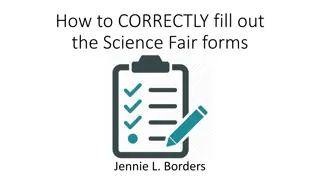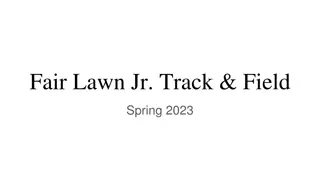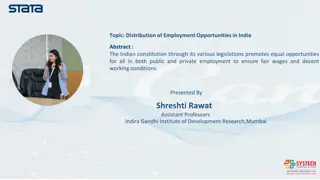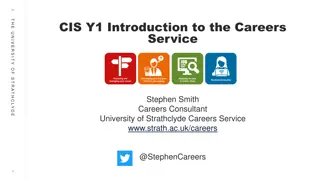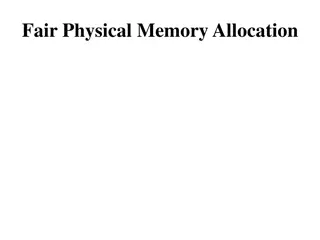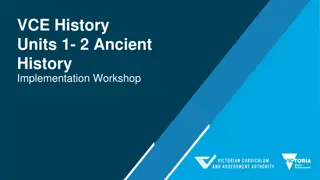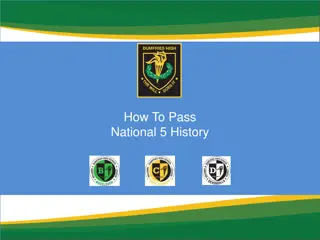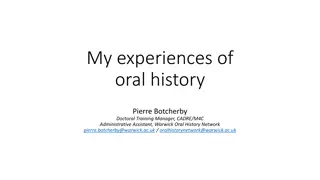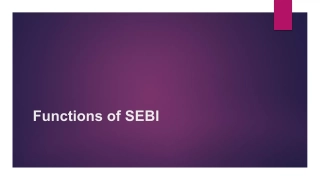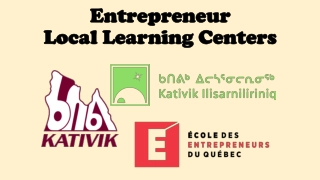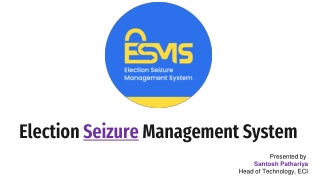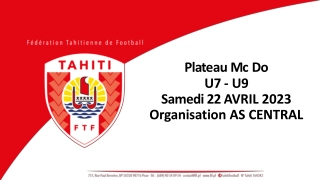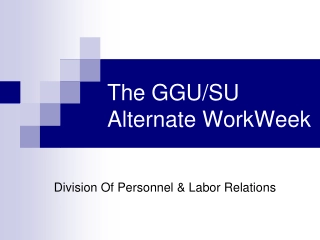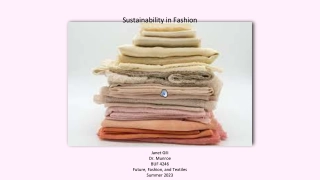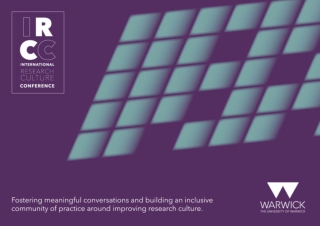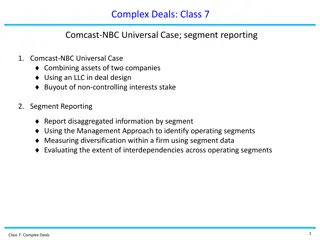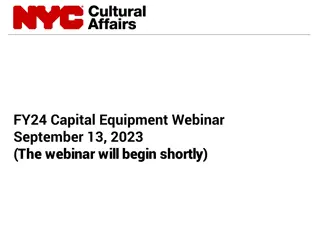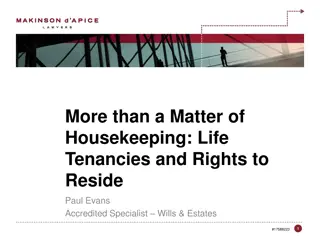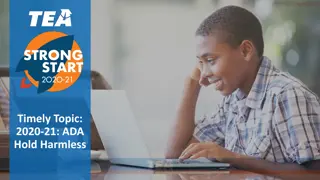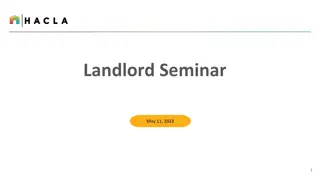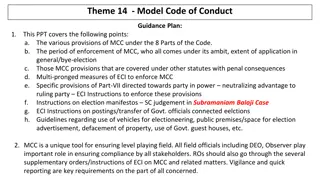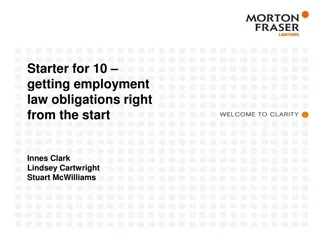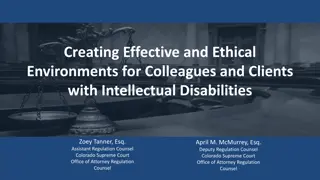. . . DO HISTORY FAIR!
Students become historians when they dive into historical questions, conduct research using credible sources, analyze data, and present their findings through projects. History Fairs offer a transformative experience where students evolve into museum curators, documentary filmmakers, scholars, website developers, and performers. Through the five steps of the History Fair project, they explore various topics and develop critical thinking skills to tell compelling historical stories.
Download Presentation
Please find below an Image/Link to download the presentation.
The content on the website is provided AS IS for your information and personal use only. It may not be sold, licensed, or shared on other websites without obtaining consent from the author. Download presentation by click this link. If you encounter any issues during the download, it is possible that the publisher has removed the file from their server.
Presentation Transcript
STUDENTS BECOME HISTORIANS WHEN THEY . . . Ask HISTORICAL QUESTIONS about a topic that interests them. Do RESEARCH using books by historians and primary sources. ANALYZE, COME TO CONCLUSIONS, AND MAKE ARGUMENTS supported by evidence. Produce PROJECTS to present to the public. . . . DO HISTORY FAIR! Chicago Metro History Fair Revised 2017
Students become museum curators and designers,
History Fair is more than an assignment it is an experience!
Five Steps for a Successful History Fair Project 1. Ask 2. 3. 4. 5. Take the Research Journey Questions & Find Your Topic Analyze Your Sources Develop an Argument Tell Us Your Story!
Step 1 ? I wonder why . . .? ? ? 1. Ask Questions & Find Your Topic
There are many ways to find topics . . . What topics interest you? What current events or issues concern you? Immigration, Ethnicity Politics, Law Labor, business Technology, medicine Arts, literature Sports, Media Civil and human rights Women s issues Environment What career do you want to have as an adult? everything has a history! What period of history is most intriguing for you? 1. Ask Questions & Find Your Topic
. . . or consider the BIG questions that YOU especially care about: How do the arts change society? How do people gain rights and share power? What happens to people, communities, nations in times of war? How do music, sports, dance, or writing impact history? How did my community get this way? What do people do when the economy changes? 1. Ask Questions & Find Your Topic
Where you can look for ideas . . . Archives & special collections finding aids Encyclopedia of Chicago, Chicago History, other Chicago-based publications Museums & cultural organizations Newspapers & magazines Your history book Talk to people! 1. Ask Questions & Find Your Topic
Make sure those ideas are History Fair-ready It can be argued or interpreted. It s history happened in the past , and shows change over time. It s historically significant. It s connected to Chicago or Illinois. Your History Fair Topic Question It s got soul! YOU CARE ABOUT IT! It s got sources for evidence. It uses the NHD theme for analysis. 1. Ask Questions & Find Your Topic
Each year, National History Day offers a theme to use with your topic. WHAT IS THIS YEAR S NHD THEME? 1. Ask Questions & Find Your Topic
The following exhibits from previous years show how your interests and topic ideas usually can connect to the current theme . . . 1. Ask Questions & Find Your Topic
Revolution, Reaction, and Reform 1. Ask Questions & Find Your Topic
Turning Points in History 1. Ask Questions & Find Your Topic
Rights and Responsibilities 1. Ask Questions & Find Your Topic
Leadership and Legacy 1. Ask Questions & Find Your Topic
Step 2 What does History Fair research look like? 2. Take the Research Journey
Research is a journey. You start it when you seek a topic and question and then go further to develop your thesis and argument. 2. Take the Research Journey
INVEST TIME IN FINDING THE TOPIC What changed? How and why? What was the impact? What was its significance? Always the big questions of history. A specific aspect of history to analyze. The theme is broad so may topics are relevant. ANNUAL NHD THEME 2. Take the Research Journey
INVEST TIME IN FINDING THE TOPIC What changed? How and why? What was the impact? What was its significance? Always the big questions of history. The specific aspect of history to analyze. For example, Turning Points in History. NHD THEME I love TV! I ll explore that topic. BROAD TOPIC 2. Take the Research Journey
INVEST TIME IN FINDING THE TOPIC What changed? How and why? What was the impact? What was its significance? Always the big questions of history. A specific aspect of history to analyze. A specific aspect of history to analyze. The theme is broad so may topics are relevant. NHD THEME I love TV ! I ll explore that topic. BROAD TOPIC Hey, I didn t know that Chicago was once famous for its television programs. Wow! Narrowed Topic 2. Take the Research Journey
INVEST TIME IN FINDING THE TOPIC What changed? How and why? What was the impact? What was its significance? Always the big questions of history. The specific aspect of history to analyze. For example, Turning Points in History NHD THEME I love TV! I ll explore that topic. BROAD TOPIC Hey, I didn t know that Chicago was once famous for its television programs. Wow! Narrowed Topic Historical Question Did early Chicago TV produce any turning points in history? 2. Take the Research Journey
INVEST TIME IN FINDING THE TOPIC What changed? How and why? What was the impact? What was its significance? Always the big questions of history. The specific aspect of history to analyze. For example, Turning Points in History. NHD THEME I love TV ! BROAD TOPIC Hey, I didn t know that Chicago was once famous for its television programs. Wow! Narrowed Topic Historical Question Did early Chicago TV produce any turning points in history? The Chicago School of Television created a unique style that changed how people viewed television shows. Working or Draft Thesis 2. Take the Research Journey MAIN RESEARCH! Now, get into the specific how and why and impact.
Doing History Fair research means you will: FIND SECONDARY SOURCES FIND PRIMARY SOURCES READ MANY DIFFERENT KINDS OF PRIMARY & SECONDARY SOURCES CONSIDER SOURCES THAT PRESENT VARIOUS VIEWPOINTS & PERSPECTIVES TAKE NOTES ABOUT & ANALYZE THE SOURCES 2. Take the Research Journey
What are Secondary Sources? Materials that give information, make an argument, or offer interpretation based on primary sources. NOTE: Use general secondary sources first to gather basic information on your topic including the background and context. 2. Take the Research Journey
ALWAYS START Encyclopedia & general reference books for starters BOOKS or ARTICLES 1. By writers summarizing historians 2. By historians that summarize or synthesize other s works 3. By historians on a narrow subject Interviews with scholars, experts, museum docents, or others with second-hand knowledge 2. Take the Research Journey
Follow the Footnotes In addition to background knowledge and reading others interpretations, secondary sources can lead to: Other Key Secondary Sources Where to find Primary Sources and often will contain primary sources themselves! 2. Take the Research Journey
What are Primary Sources? Materials made at the time, for the time, or persons who were witnesses or participants. Primary sources are the voices from the past that make history come alive. They are the historian s EVIDENCE. 2. Take the Research Journey
Speeches Letters Photographs Posters, flyers Diaries Interviews witness & participants Newspapers, serials Minutes or reports, government documents 2. Take the Research Journey
Photographs 2. Take the Research Journey
Newspapers, Periodicals, and Serials (Magazines) 2. Take the Research Journey
Flyers, Posters, and Cartoons 2. Take the Research Journey
Reports, Government Documents, Laws, Trials, and Meeting Minutes 2. Take the Research Journey
Also look for . . . Speeches Interviews Oral Histories Letters Diaries 2. Take the Research Journey
Primary or Secondary? 2. Take the Research Journey For more on research resources, see the Research Journey Power Point on the Research History Research Journey section of the website.
WHERE CAN I FIND SOURCES? Libraries Archives/Special Collections Neighborhoods Organizations Historic sites Museums Internet-Online Databases and Digital Collections 2. Take the Research Journey
You can make History Fair research one of the highlights of this school year! Make connections to today find out why your topic made a difference Interview historians or experts in the topic Interview people who were witnesses and participants Research in special collections at universities Visit historic sites and museums 2. Take the Research Journey
What makes a quality website for online primary and secondary sources? Check out the Recommended Websites page on the History Fair s website .edu - look for digitized images and documents or articles/reports authored by professors. Avoid .edu websites made by other students .gov - look for the real images and documents, authorized articles rather than public relations pages .org - can be ok if it is credible and authored by an expert. You might need to dig to determine Wikipedia? OK for background to get you going, but not for bibliographies. .com - un-authored sites are not credible. Note: Google, Yahoo, Ask.com are search engines, not sources. Think of a search engine as a LIBRARY. It is a place that has sources for you to find. 2. Take the Research Journey
ONLINE databases for secondary sources are great! Sometimes the secondary sources will use primary sources that are hard to find elsewhere too. J-STOR and First Search and other online databases are available at all CPL branches. 2. Take the Research Journey
Superior websites give you real primary sources and are usually connected to universities, government, historical societies/museums, special collections. 2. Take the Research Journey
Keep track of all your sources as you are doing your research or you could get lost by the end of the journey. RECORD ALL THE INFORMATION FOR YOUR BIBLIOGRAPHY WHILE YOU ARE LOOKING AT THE SOURCE! 2. Take the Research Journey
Just like historians, you will need to submit an Annotated Bibliography with your project: A bibliography contains citations--the detailed publication information--about every source you used. An annotation is your summary of the source and explanation of how it was used in your project. (You will attach your Annotated Bibliography to the Summary Statement to give to your judges.) 2. Take the Research Journey
The annotation summarizes the source and explains how it was used in project. Bibliographic Information may be either MLA or Turabian style. But be consistent. Primary and Secondary Sources should be separated. 2. Take the Research Journey
Step 3 Learning How to Take Notes and Analyze Your Sources What do I do with all of this?!? 3. Analyze Your Sources
When youre researching, organize what you are finding into six main areas: 1. Description: who, what, when, where 2. Historical context 3. What happened: how and why 4. Causes or contributing factors 5. What changed and why: effects & impact 6. Significance Your notes = the information you are finding but ALSO your analysis of that information. 3. Analyze Your Sources
What is Context? BACKGROUND How were things done or thought before the change? What else was going on at the same time that connects? Who else was involved at the time? What is the particular era in history called and how does your story fit in? 3. Analyze Your Sources
What makes a topic Historically Significant? Profound: How deeply people were or have been affected, lives changed? Quantity: Did it affect many or just a few? Were the effects widespread or limited? Durable: Did the effects last a long time or fade quickly? Relevant: How does it contribute to our understanding of the past/present? Does it carry any meaning to historians today can we learn from it? 3. Analyze Your Sources




